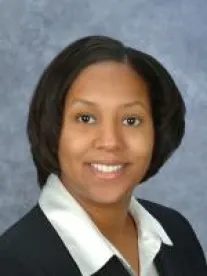Recently, on September 24, 2013, the New Jersey Supreme Court issued a unanimous opinion in Farmers Mut. Fire Ins. Co. of Salem v. N.J. Property-Liability Ins. Guar. Ass’n, Docket No. A-42-11, holding that in a continuous-trigger case, where an insolvent carrier along with a solvent carrier is required to pay the costs of the personal injury or property damage in an environmental cleanup matter, the New Jersey Property-Liability Insurance Guaranty Association Act (Act), N.J.S.A. 17:30A-1 to -20, contains an exhaustion provision requiring the claim insured to first exhaust the policy limits of the solvent insurance company prior to seeking benefits from the New Jersey Property Liability Insurance Guaranty Association (Guaranty Association). In Farmers Mut. Fire Ins., the Supreme Court had to determine how the Legislature’s 2004 amendment to the Act, impacts the common-law jurisprudence setting forth the methodology for allocating liability among insurance companies for bodily and property damages in environmental contamination matters as found in Owen-Illinois, Inc. v. United Insurance Co., 138 N.J. 437 (1994) and its progeny.
Due to the fact that environmental contamination matters involve claims that usually span several insurance policy periods, the Court adopted an allocation methodology in Owen-Illinois, known as continuous-trigger doctrine which held that an occurrence triggered the insurance policies from the time a person or property is exposed to contamination to the manifestation of injury or damage. This “occurrence” may span numerous years from exposure to manifestation, triggering every insurance policy on the risk. The allocation methodology then calls for a proration scheme allocating the damages among the insurance policies based on the carrier’s years on the risk and the degree of risk assumed. Subsequent case law refined the continuous –trigger doctrine and allocation methodology first held in Owens-Illinois.
In the case of an insolvent insurance carrier, the Guaranty Association takes over the administration of claim of an insolvent insurance carrier on the risk pursuant to the Act. An objective of the Act is to conserve the Guaranty Association’s resources. Specifically, N.J.S.A. 17:30A-12b requires that where a solvent and insolvent insurer has been requested to pay a claim arising under their policies, the claimant must “exhaust first” the policy of the solvent insurer. In 2004, the Legislature amended the Act defining the word “exhaust” in continuous trigger cases found in N.J.S.A. 17:30A-5.
Specifically, the Court noted that the definition found in N.J.S.A. 17:30A-5 “requires the exhaustion of all insurance benefits from solvent insurers on the risk before [the Guaranty Association], standing in the shoes of an insolvent insurer, must pay statutory benefits.” The Court stated that that the interpretation of N.J.S.A. 17:30A-5 and -12b requires that “when one of the several insurance carriers on the risk is insolvent in a continuous-trigger case, then the limits of the policies issued by solvent insurers in any other years must first be exhausted before the Guaranty Association is obligated to pay statutory benefits. In other words, if there are no solvent carriers on risk in all other years, N.J.S.A. 17:30A-5 is not applicable because then there are no other coverages, primary and excess to be exhausted.” The Act specially requires the superseding of any laws of the State inconsistent with the Act, N.J.S.A. 17:30A-4b. Thus, the Owens-Illinois and its progeny’s allocation methodology scheme does not take precedence over the 2004 amendments to the Act.
The Supreme Court held that N.J.S.A. 17:30A-5 provides for an exception to Owen-Illinois and requires exhaustion of the solvent carrier’s policies before the Guaranty Association is required to reimburse. The Supreme Court held that the Legislature specifically exempts the Guaranty Association from the Owen-Illinois methodology until all solvent insurance companies’ policy limits are exhausted, pursuant to N.J.S.A. 17:30A-5 and -12b. Hence, Guaranty Association is an insurer of the last resort.




 />i
/>i

